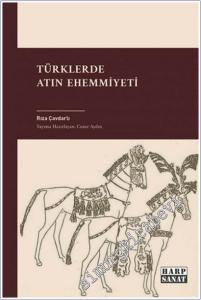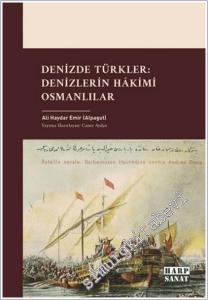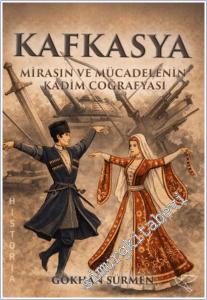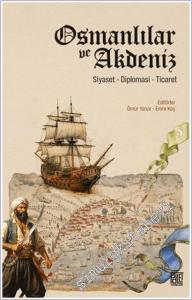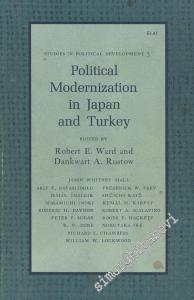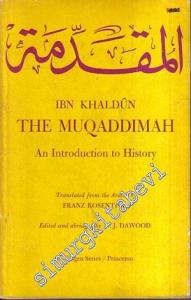1199107534
493281

https://www.simurgkitabevi.com/bismarck-and-the-development-of-germany-the-period-of-unification-1815-1871
Bismarck and the Development of Germany : The Period of Unification 1815 - 1871 - #smrgSAHAF
0.00
The three volumes of this monumental work on Bismarck and his times constitute not only a finely honed analysis of a perplexing and enduringly fascinating human being but also a masterful study of nineteenth-century Germany. The product of a lifetime of scholarship, Otto Pflanze's trilogy blends into a single synthesis all aspects of the German historical experience, from the economic and social to the political and intellectual, in their relationship to Bismarck and his career. The purpose is to describe the interaction between a man of genius and the forces that both molded him and were reshaped by him--an objective that cannot be achieved within the limits of the customary biographical form.The author emphasizes the need to reassess the German past in view of the terrible tragedy of the twentieth century. Addressing this task in the most comprehensive way possible, Pflanze offers fresh insights into the functioning of both the internal and international political systems of the Bismarck era. At the same time Bismarck, the man, has not been neglected. The three volumes of the work combine to produce a vivid picture of this narcissistic personality, demonstrating the connections among health, neurosis, and political judgment. For the first time we can see the entire person and how his strengths and weaknesses became the key to modern German history.Volume I: The Period of Unification, 1815-1871"The stream of time flows inexorably along. By plunging my hand into it, I am merely doing my duty. I do not expect thereby to change its course." This was the thought with which Otto von Bismarck began his career in the Prussian foreign service in 1851. Yet the will to power was the centralcharacteristic of his personality. Describing the interaction between the "stream of time"--or social, political, intellectual, and institutional forces--and the character of one of history's greatest political talents, the author probes Bismarck's role in the unification of Germany and assesses his influence on the subsequent course of German history. Volume I of Pflanze's work was first published in 1963, to wide acclaim. Presented here is a revised edition that incorporates the most recent research and appears simultaneously with the first publication of Volumes II and III.Volume II: The Period of Consolidation, 1871-1880Volume II opens at a time when Bismarck had become the dominant figure in German and European politics and the new German Reich the most formidable power on the continent. Questions arose. What new goals would the "man of blood and iron" now pursue? What new conquests might be necessary to satiate a people steeped in the history and legends of medieval empire? Pflanze offers a comprehensive treatment of the years of consolidation, when, in reality, German unification introduced not a new era of conquest and bloodshed but a period of international order that lasted, despite many crises, for more than forty years.Volume III: The Period of Fortification, 1880-1898The burst of capitalistic expansion that accompanied German unification came to an abrupt end with the crash of 1873, which opened a period of economic depression. Volume III describes the continuation of Bismarck's efforts to cope with the resulting economic and social problems that hindered his quest for a new national consensus in support of the Prussian-German "establishment." It also brings to a climax theauthor's account of Bismarck's mounting political frustrations, their psychopathological consequences, and the struggle of his doctors to convert him to a healthier life-style. The final chapters deal with the fascinating story of Bismarck's conflict with Wilhelm II. The work ends with an account of the Bismarck legend that endures to this day and may yet influence Germany's current quest for reunification.
The three volumes of this monumental work on Bismarck and his times constitute not only a finely honed analysis of a perplexing and enduringly fascinating human being but also a masterful study of nineteenth-century Germany. The product of a lifetime of scholarship, Otto Pflanze's trilogy blends into a single synthesis all aspects of the German historical experience, from the economic and social to the political and intellectual, in their relationship to Bismarck and his career. The purpose is to describe the interaction between a man of genius and the forces that both molded him and were reshaped by him--an objective that cannot be achieved within the limits of the customary biographical form.The author emphasizes the need to reassess the German past in view of the terrible tragedy of the twentieth century. Addressing this task in the most comprehensive way possible, Pflanze offers fresh insights into the functioning of both the internal and international political systems of the Bismarck era. At the same time Bismarck, the man, has not been neglected. The three volumes of the work combine to produce a vivid picture of this narcissistic personality, demonstrating the connections among health, neurosis, and political judgment. For the first time we can see the entire person and how his strengths and weaknesses became the key to modern German history.Volume I: The Period of Unification, 1815-1871"The stream of time flows inexorably along. By plunging my hand into it, I am merely doing my duty. I do not expect thereby to change its course." This was the thought with which Otto von Bismarck began his career in the Prussian foreign service in 1851. Yet the will to power was the centralcharacteristic of his personality. Describing the interaction between the "stream of time"--or social, political, intellectual, and institutional forces--and the character of one of history's greatest political talents, the author probes Bismarck's role in the unification of Germany and assesses his influence on the subsequent course of German history. Volume I of Pflanze's work was first published in 1963, to wide acclaim. Presented here is a revised edition that incorporates the most recent research and appears simultaneously with the first publication of Volumes II and III.Volume II: The Period of Consolidation, 1871-1880Volume II opens at a time when Bismarck had become the dominant figure in German and European politics and the new German Reich the most formidable power on the continent. Questions arose. What new goals would the "man of blood and iron" now pursue? What new conquests might be necessary to satiate a people steeped in the history and legends of medieval empire? Pflanze offers a comprehensive treatment of the years of consolidation, when, in reality, German unification introduced not a new era of conquest and bloodshed but a period of international order that lasted, despite many crises, for more than forty years.Volume III: The Period of Fortification, 1880-1898The burst of capitalistic expansion that accompanied German unification came to an abrupt end with the crash of 1873, which opened a period of economic depression. Volume III describes the continuation of Bismarck's efforts to cope with the resulting economic and social problems that hindered his quest for a new national consensus in support of the Prussian-German "establishment." It also brings to a climax theauthor's account of Bismarck's mounting political frustrations, their psychopathological consequences, and the struggle of his doctors to convert him to a healthier life-style. The final chapters deal with the fascinating story of Bismarck's conflict with Wilhelm II. The work ends with an account of the Bismarck legend that endures to this day and may yet influence Germany's current quest for reunification.
Yorum yaz
Bu kitabı henüz kimse eleştirmemiş.


